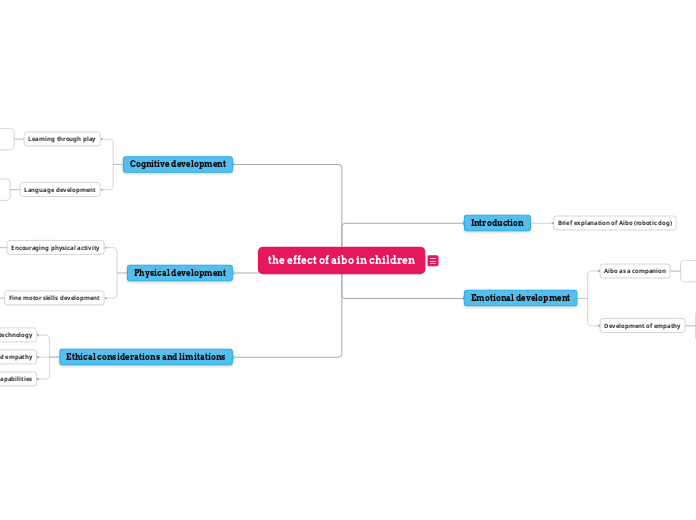the effect of aibo in children
Introduction
Brief explanation of Aibo (robotic dog)
Emotional development
Aibo as a companion
Aibo's ability to form emotional connections with children
Impact on children's social and emotional skills
Development of empathy
Aibo's ability to simulate emotions
How interacting with Aibo can help children understand and express empathy
Cognitive development
Learning through play
Aibo's interactive features that promote learning
Improvement in problem-solving and critical thinking skills
Language development
Aibo's role in encouraging verbal communication
How Aibo can enhance vocabulary and language skills
Physical development
Encouraging physical activity
Aibo's interactive play features that promote movement
Benefits of physical activity on children's overall health
Fine motor skills development
Aibo's manipulation and control features
Improvement in hand-eye coordination and dexterity
Ethical considerations and limitations
Potential overreliance on technology
The need for human interaction and empathy
Limitations of Aibo's capabilities
